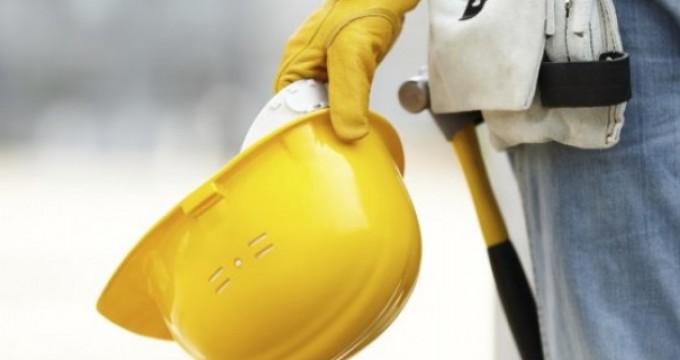


We call on the Government of Georgia and the Parliament of Georgia to take immediate concrete measures for instant and unconditional transformation of the safety situation in Tkibuli mineshafts and other industries associated with similar risks. They should take responsibility for social wellbeing of workers and their families, who are in a grave situation.
The industrial accident that occurred in Tkibuli on April 5, killing 6 miners and injuring three clearly shows the ineffectiveness of steps made recently by the state and failure of current policy to provide meaningful insurance against risks that result in killing and maiming of workers. The state’s policy cannot guarantee minimum social protection for workers.
The government initiated the Law on Labor Safety in response to the death of four miners in Tkibuli mineshaft in 2017. Although existing situation clearly showed the need to adopt the law in the shortest time possible, discussions about the law were dragged on for nearly a year owing to the position of the government’s economic team. While the bill was discussed, 11 workers were killed in Tkibuli mineshafts alone in the last 11 months and 47 workers were killed and 106 were injured nationwide in 2017. [1]
The Law on Labor Safety adopted following the delayed process has numerous flaws. It fails to address the important challenges faced by workers in Tkibuli or Chiatura mines and in other hazardous occupations. Moreover, the law will not become fully effective until 6 months after its adoption, meaning that workers in hazardous occupations who put their life and health at risk remain beyond control and protection. This warrants creation of a special regime by the state to ensure occupational safety.
Inadequate compensation and lack of basic guarantees for social protection is another important problem that workers of mining and mineral processing industries face, in addition to the lack of physical safety. They live and work in grave conditions created by pollution, which has adverse effect on their health and everyday life. Mono-towns where local population primarily depends on certain mining and processing industries for income require particular attention. The fact that there are no other opportunities of employment in such towns drives locals to seek employment in mines, shafts or gold mining factories with no other alternative. This also contributes to opportunities of high social control.
The state has no special regime of social protection for workers in heavy, hazardous and dangerous occupations [2], to ensure their minimum wellbeing and compensate the harm manifested in constant damage of health as a result of heavy, hazardous and dangerous factors and development of occupational disease.
Lack of alternative vision for development of mono-towns and failure to consider the grave conditions that workers in heavy, hazardous and dangerous occupations are forced to endure is indicative of the state’s zero responsibility towards these towns and their populations, leaving them in their fight for physical survival without any support.
We believe that the state should immediately recognize and acknowledge its important role in provide physical and social safety for workers and their families and ensure immediate solution to their needs by creating an ad hoc system and minimum guarantees for social protection.
Since the existing occupational and social safety system fails to provide minimum response to risks and threats faced by workers and their employees, we demand the following:
- The state should take immediate measures to protect safety of workers of Tkibuli mineshafts. In particular, we demand temporary suspension of operation of Tkibuli mineshafts until they are fully modernized. During this time, the company and/or the state should undertake to fully cover salaries of the workers. Ad hoc commission should be set up with participation of responsible entities, the company, workers and international experts, to study the situation in mineshafts and create a technical and financial plan for modernization;
- The state should ensure development of a social security system for workers in heavy, dangerous and hazardous occupations, one that will recognize harmful effects of heavy, dangerous and hazardous work on individual’s health and ensure compensation of such effects. Among other things, the state should consider lowering the retirement age and reflecting nature of occupations in the pension system, providing income tax exemptions, creating a compensation system for workers that sustain injuries during working process, etc.;
- The state should immediately develop an alternative vision for economic development of Tkibuli and other mono-towns, to allow diversification of economic activity in these towns and create new and sustainable opportunities for employment and development.
Signatory organizations:
Human Rights Education and Monitoring Center (EMC)
Georgian Young Lawyers’ Association (GYLA)
Article 42 of the Constitution
You for Democracy (YFD)
Young Socialists (YSG)
Georgian Progressive Forum (GPF)
Analytical platform European.ge
Auditoria 115
[1] According to the official information provided by the Ministry of Internal Affairs, 143 instances of violation of occupational safety rules resulting in worker death and injury were found in 2016, while in 2017 number of such instances reached 153. https://emc.org.ge/ka/products/2017-tslis-ganmavlobashi-satsarmoo-shemtkhvevebis-shedegad-dashavebulta-raodenoba-gaizarda
[2] With the exception of a 10-day leave of absence for workers in heavy, hazardous and dangerous occupations
ჯ. კახიძის #15, თბილისი, საქართველო, 0102 ; ტელ: (995 32) 95 23 53; ფაქსი: (995 32) 92 32 11; ელ-ფოსტა: gyla@gyla.ge; www.gyla.ge
15, J. Kakhidze str. 0102, Tbilisi, Georgia. Tel: (995 32) 95 23 53; Fax: (995 32) 92 32 11; E-mail: gyla@gyla.ge; www.gyla.ge